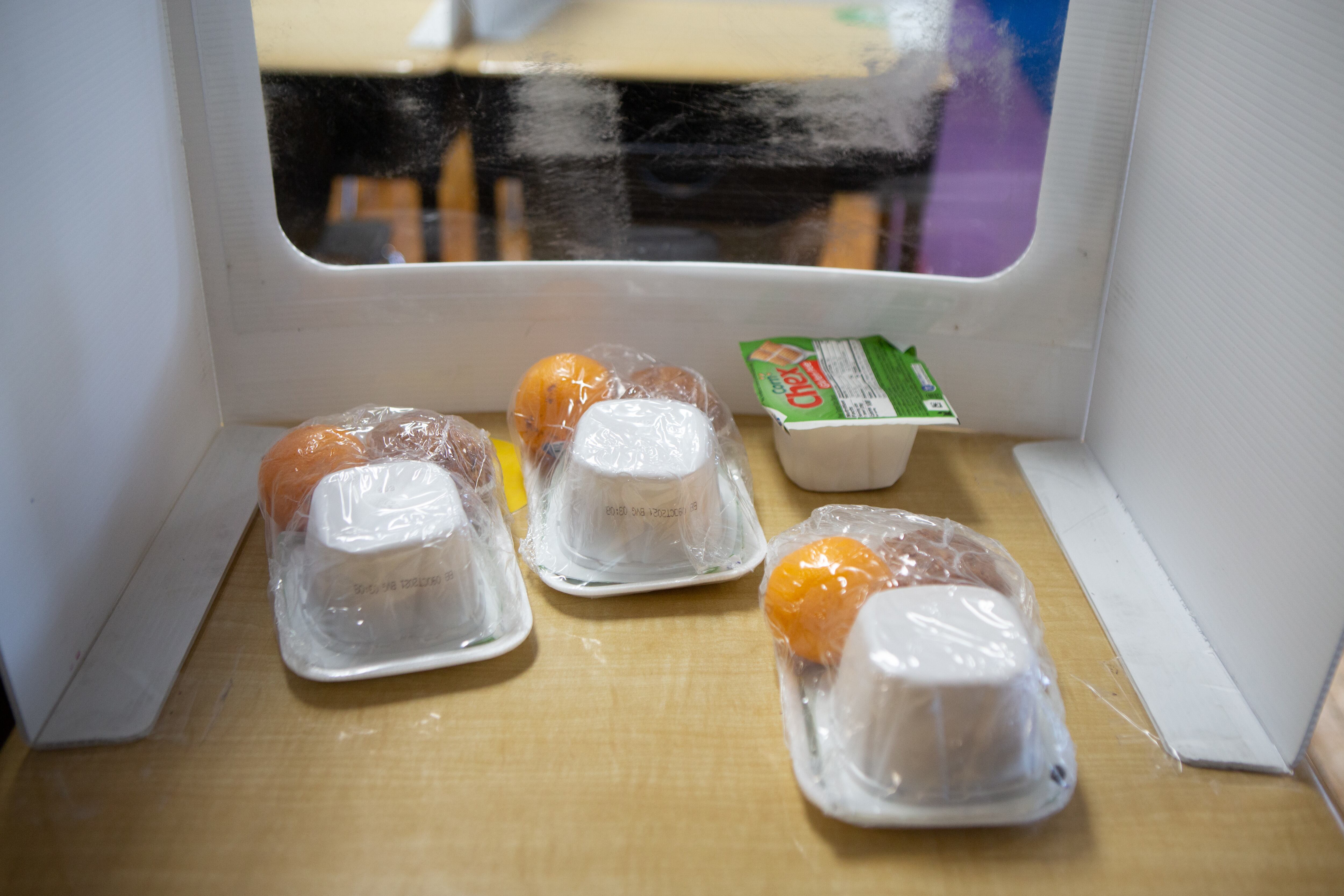Some New Jersey schools are scrambling to keep their kitchens stocked with nutritious food that children will eat due to nationwide supply chain snags and labor shortages.
The challenges have forced some schools to pare down their lunch menus or find substitutes for hard-to-stock items. Last month, Newark, the state’s largest school district, began paying a vendor for pre-made school meals after staff and supply shortages prevented some schools from making meals on site.
Now, some students are bemoaning the reduction in menu items while also questioning the quality of the cafeteria food — a complaint many families lodged even before the pandemic.
“A lot of kids at school don’t eat lunch because it’s not good,” said Ya’Nae Latif, a senior at American History High School in Newark, adding that she has noticed fewer lunch options this fall than in the past. “It’s times where it’s so bad you just don’t eat all day. You just wait until you go home.”
The pandemic has thrown the nation’s school food system off balance.
Across the country, food manufacturers are struggling to meet demand due to global supply-chain issues and worker shortages. Distributors also are having a hard time delivering food to schools. And some school systems are short cafeteria workers, making it difficult to prepare meals from scratch.
The disruptions have resulted in higher food prices, discontinued products, and delayed or partial shipments, said Diane Pratt-Heavner, director of media relations for the School Nutrition Association, a national trade group. In response, many schools are limiting menu options, serving pre-packaged meals, or turning to pizza shops and supermarkets to make up for supply shortfalls.
“They’re really having to scramble to make it happen,” she said. She added that one bright spot for schools has been assistance from the U.S. Agriculture Department, which has eased regulations and promised $1.5 billion in extra aid to help school cafeterias respond to the supply chain crisis.
Finding well-stocked suppliers is getting harder by the day, said Warren DeShields, director of food services for the public schools in Bridgeton, New Jersey. Distributors are short on lunchroom staples, such as chicken patties, and the plates, bowls, and bags needed to serve meals. The shortages have forced DeShields to schedule the same menu items more often, find substitute proteins, and try different vendors.
“Right now, it’s a matter of being creative with what you can get,” he said, “and making sure that you put out a meal that’s still appetizing and healthy for the kids.”
The Newark school district, which enrolls about 37,000 students, also has had to pivot.
Earlier this year, the Newark school board awarded contracts to companies that supply ingredients for schools to make their own meals. However, the pandemic created “supply chain hardships and staffing matters,” forcing the district to at least partially outsource meal production, according to a board document.
Last month, the board approved a $3.9 million “emergency purchase” of prepared meals from New York-based Whitsons Food Service Corp., along with about $127,000 for utensils from Uline Inc.
As the district scrambles to feed students, many of whom rely on school meals as their main source of nutrition, some families say the food being served is subpar.
In recent days, people have posted photos and comments on social media criticizing Newark’s school food, and one parent, who wrote that she has children in traditional and charter schools, started an online petition calling for better school meals.
“The food is horrible,” parent Liliana Umana told Chalkbeat.
She said her children, who attend Barringer High School and Dr. William H. Horton Elementary School, often refuse to eat the cafeteria food. And, echoing other parents, she said the schools do not allow children to bring in packed lunches from home. (A Newark Public Schools spokesperson said students can bring packed lunches as long as they follow “safety and established nutritional guidelines,” which she did not specify.)
“How are they supposed to learn on an empty stomach?” she said.
Her daughter, Nathaly, said she eats some cafeteria items but throws out others.
“Sometimes we get lucky and get the good stuff,” like hot dogs and pizza, the fifth grader said. “But usually we don’t.”
The district works with families and schools to “minimize issues” and ensure that students eat high-quality food, added the district spokesperson, Nancy Deering.
“We train our staff to prepare food that is appealing and nutritional,” she said in a statement.
Newark charter schools also have faced criticism for unappetizing cafeteria food.
Last week, a parent posted a photo on Facebook that she said was taken by her son, an 11th grader at North Star Academy’s Washington Park High School. The photo shows a tray with mashed potatoes and meat of some kind, which the caption says was cold and “not even cooked.”
Isayah, a junior at that school who declined to give his last name, told Chalkbeat the cafeteria did recently serve the items pictured, but his food was fully cooked. “When I had it, it was actually pretty good,” he said.
A North Star Academy spokesperson said the schools purchase meals from a vendor. Cafeteria workers heat the meals, but food occasionally might be served that needs additional heating, she said.
Justin, another junior at the high school who also withheld his last name, said he generally avoids the school food.
“I just don’t like it,” he said.






